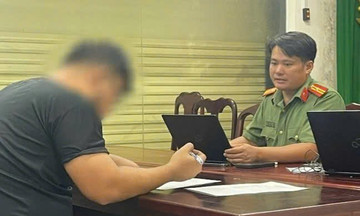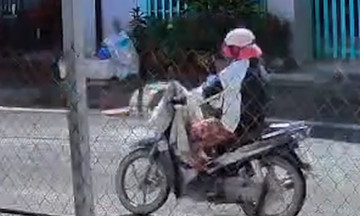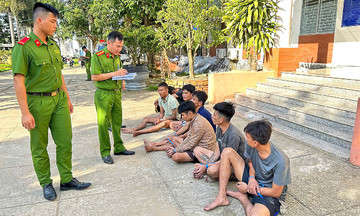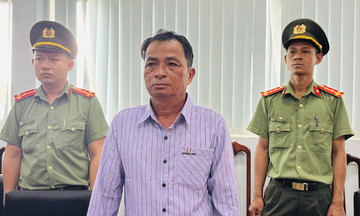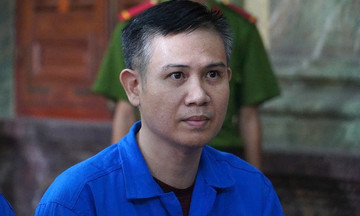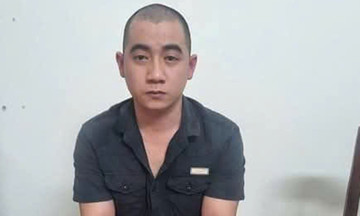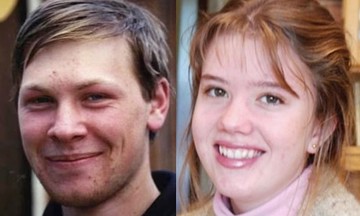On the afternoon of 17/9, the trial continued with questioning in the case of fraudulent transfer of four prime land plots in Saigon Ward. The land, originally owned by the Southern Food Corporation - Vinafood II (a 100% state-owned enterprise), was transferred to private ownership, resulting in a loss of 970 billion VND.
Dinh Truong Chinh (51, former chairman of the Board of Directors of Housing Development and Trading Joint Stock Company - HDTC), Huynh The Nang (66, former general director of Vinafood II), and Nguyen Tho Tri (64, former deputy general director of Vinafood II) are charged with violating regulations on the management and use of state assets, causing loss and waste.
Chinh testified that he initially received an invitation from Vinafood II to collaborate on a project involving over 6,300 square meters of land at 33 Nguyen Du Street and 34, 36, and 42 Chu Manh Trinh Street, Saigon Ward (formerly Ben Nghe Ward, District 1). He was unaware of Vinafood II's state-owned status and intended to purchase the four properties outright, not participate in a joint venture.
According to Chinh, Vinafood II later proposed a different approach: a joint venture named Viet Han Saigon, with Chinh contributing 80% of the capital in cash and Vinafood II contributing 20% through the land-use rights certificate. After government approval, the two parties signed a land transfer contract for 730 billion VND. Chinh affirmed he relied on the appraisal certificate before agreeing to this plan.
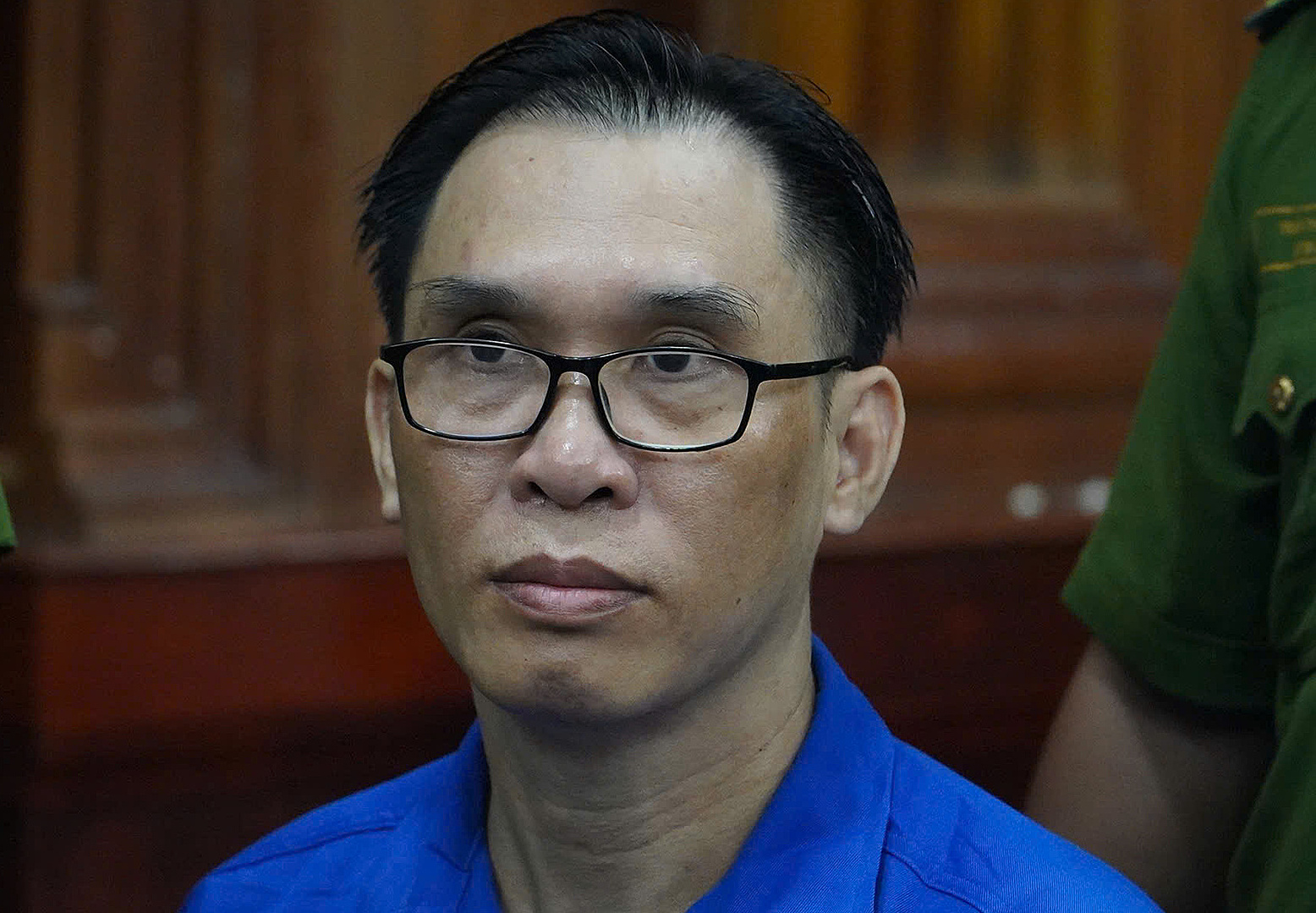 |
Defendant Dinh Truong Chinh at the trial today. Photo: Hai Duyen |
Defendant Dinh Truong Chinh at the trial today. Photo: Hai Duyen
Initially blaming an absent party, Chinh later admitted fault.
The indictment alleges that in 2010, after fulfilling its financial obligations of over 766 billion VND, Vinafood II received the land-use rights certificate from the Ho Chi Minh City People's Committee to construct a hotel, office building, and commercial center. Between 2014 and 2015, facing losses, Vinafood II decided to sell these four properties to recover capital. Dinh Truong Chinh, seizing this opportunity, repeatedly offered to purchase them. After paying 730 billion VND, he did not develop the project but instead offered the properties for resale at approximately 2,000 billion VND. Just 33 days later, he transferred 99% of his stake in Viet Han Saigon to Mua Dong Company for 1,683 billion VND, profiting 970 billion VND.
To conceal this, Chinh enlisted his cousin, Hoang Ngoc Cam Hong, to sign the contract and sell to Mua Dong. The funds were then circulated through various accounts, including Chinh's.
In court, Chinh admitted to promising Vinafood II project development and the handover of 20% of the apartments. However, he claimed the project was unfeasible due to outstanding compensation issues with residents and the actual land area being only 3,000 square meters.
"I was deceived, spending over 700 billion VND only to operate a parking lot generating 4 billion VND monthly," Chinh stated. He added that he had discussed this situation with Hong before selling the land and was unaware of Mua Dong Company's identity, claiming Hong handled the transaction.
When questioned about the funds from the land sale returning to his personal account, Chinh explained it was borrowed money. However, the presiding judge presented witness testimony indicating Hong's financial difficulties and lack of business activities in Vietnam, suggesting the sale price was directly negotiated with Chinh.
Confronted with this evidence, Chinh acknowledged the illegality of acquiring state-owned land without auction and applying for a new certificate. He denied, however, profiting 970 billion VND as alleged. The court presented further evidence of Chinh's profit. After a recess, when the procuracy representative asked if he agreed to compensate for the losses, Chinh replied, "I agree."
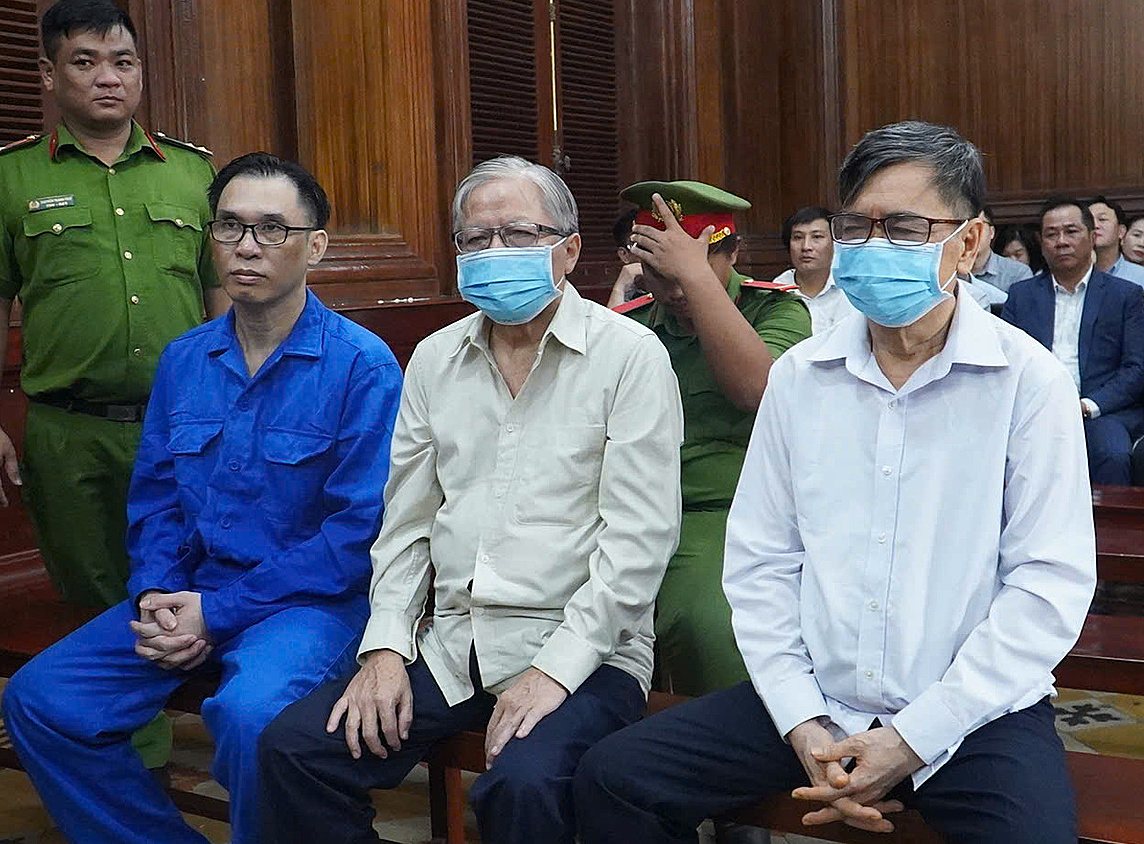 |
Defendants Huynh The Nang and Nguyen Tho Tri (right to left) at the trial today. Photo: Hai Duyen |
Defendants Huynh The Nang and Nguyen Tho Tri (right to left) at the trial today. Photo: Hai Duyen
Vinafood II executives requested the court consider the context of their violations.
Authorities determined the land, being state-owned, required public auction and government authorization for transfer. Huynh The Nang, aware of these regulations, colluded with Chinh to legitimize the transfer through a joint venture, leading to substantial losses. Nguyen Tho Tri assisted Nang in devising and legitimizing the procedures.
Nang and Tri testified that the 730 billion VND from Chinh's company was for the land transfer, not a capital contribution. They argued a public auction was impossible at the time due to unresolved compensation and relocation issues with residents. They requested the court reconsider the context of their actions and the actual losses incurred.
The trial will continue tomorrow with lawyer questioning.
Hai Duyen



